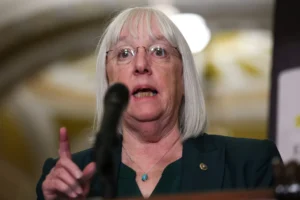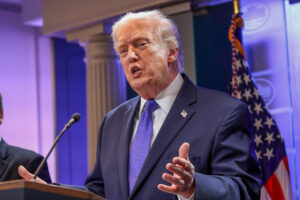The embattled Conservative government in Britain has revealed a series of measures aimed at curbing the surge in migration levels, a pivotal issue ahead of an anticipated general election next year.
The UK’s latest actions include raising the minimum salary threshold for skilled worker visas and preventing health and social care staff from bringing family dependents to Britain.
Prime Minister Rishi Sunak’s office hails these proposals as “the biggest clampdown on legal migration ever,” while critics argue that such measures could harm the National Health Service (NHS), already grappling with staff shortages.
Migration is poised to be a crucial topic in upcoming nationwide elections, expected by January 2025, with the Labour party currently seen as the favored contender. Sunak, committed to reducing new arrivals, faces pressure following recent statistics indicating a surge in net migration to Britain in 2022.
Interior minister James Cleverly presented the plan, claiming it would result in 300,000 fewer people arriving in the UK in the coming years. Under the proposals, skilled foreign workers seeking a UK visa must earn £38,700 ($48,860), up from £26,200, aligning with the median full-time wage. Health and social care workers are exempted but are barred from bringing family dependents.
While NHS Providers and Care England express concerns about potential deterrence for care workers, Cleverly also raised the minimum income for family visas, confirmed restrictions on international students bringing dependents, and announced a 66 percent increase in the surcharge migrants pay for NHS access to £1,035.
Critics argue that this surcharge imposes an additional burden on migrant workers, who already contribute to healthcare costs through National Insurance charges.
‘Do or Die Matter’
James Cleverly, the UK’s Interior Minister, announced government plans to overhaul the “shortage occupation list,” specifying jobs challenging to fill with British workers.
This move comes as the Conservative government, led by Boris Johnson, faces pressure to fulfill its promise of reducing net migration, a key factor that contributed to their landslide victory in the 2019 election.
Despite pledging that leaving the EU would enable the UK to regain control of its borders and curb migration, regular migration has surged since the formal departure in January 2020.
In 2021, net migration reached 488,000, prompting internal pressure on Prime Minister Rishi Sunak from his own party members to address the issue urgently. Some within the Conservative ranks consider the matter “do or die” for the party.
Labour, the main opposition, also criticizes the government’s handling of migration, claiming it is in a “chaotic panic.” Yvette Cooper, Labour’s home affairs spokesperson, labeled the government’s announcement as an admission of years of failure.
The political landscape, as reflected in opinion polls, indicates a lead for Labour, signaling challenges for the Conservatives, who have been in power since 2010.
Aside from concerns about regular migration, the UK government is grappling with irregular arrivals crossing the English Channel.
Approximately 30,000 individuals have undertaken this perilous journey in small boats in the current year.
The government’s plan to deport asylum seekers to Rwanda faced legal setbacks last month, prompting Cleverly to visit Kigali to finalize a new treaty.
Additionally, the government aims to introduce “emergency legislation” to facilitate deportation flights by spring.
Ada Peter



























